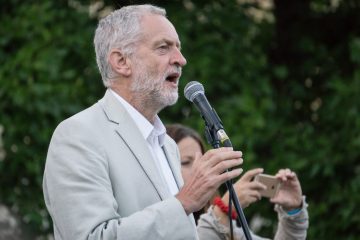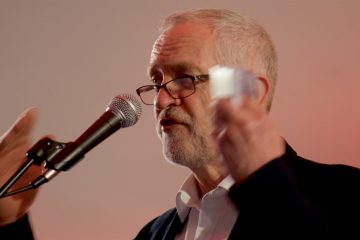
Brexit Buyers’ Remorse? Non, on ne bregrette rien
The vote to leave the EU was an outcome which surprised most commentators, bookies, and even those who voted for the winning side. In the aftermath of the result, John Gray, a popular political theorist, wrote that ‘voters inflicted the biggest shock on the establishment since Churchill was ousted in 1945’. It is hard to think that he is wrong. The only social classes which predominately voted Remain were ABs (affluent and middle-class voters), whereas C1 C2 DE (lower middle-class and working-class) voters all delivered majorities for Leave. As I predicted on this blog in January and contrary to many commentators’ expectations, the referendum engaged more voters than recent general elections. It generated the highest turnout in a UK election …

Brexit and the Radical Tory Tradition of British Socialism
In the spasms of defeat following the EU referendum, some Remain commentators have suggested that Brexit was a fundamentally racist choice. Indeed, one of the most forceful was Richard Elliot’s assertion on this blog that Brexit supporters are ‘the Cecil Rhodes of the twenty-first century’. Elliot’s article reflects the stifling academic consensus which cannot even comprehend how ‘good people’ could vote to Leave. This breathtakingly simplistic analysis amounts to little more than the assertion that clever, open-minded people voted to Remain whereas stupid, backward people voted to Leave. It echoes the debate over joining the Euro fifteen years ago when, as Larry Elliot reflected, ‘People who liked the Euro were civilised, supported the arts, went to Tuscany or the Dordogne …

Post-Brexit wave of hate has laid bare the tensions and divisions in Britain
Following the vote to leave the European Union, there has been a sudden upsurge in racist incidents in Britain. The wave of hate has taken many people by surprise, and has laid bare some of the tensions and divisions eating away at the heart of the United Kingdom. It has also called into question Britain’s claim to be a liberal and inclusive multicultural society, leading to considerable soul searching. A state that has often spoken out against identity politics and prejudice abroad is now facing up to the reality that these issues need to be addressed back home. Predictably and understandably, much of the recent commentary as focussed on the divisive referendum campaign and the fact that the UK voted …

Round 4 in the Fight to Keep Corbyn
The Parliamentary Labour Party (PLP) is currently engaged in an ongoing struggle with its leader, Jeremy Corbyn. In a series of exchanges, my colleague, Blake Ewing, and I engage in a debate over whether he should stay or go. Ewing has taken the time to reply to my response to his original piece. There is disagreement between on us on quite a number of fronts, including on our fundamental political commitments. I think the most productive approach, is to summarise what I take to be his three most important arguments and offer my response. So here goes. Ewing disputes my claim over Corbyn’s support in the Labour Party arguing ‘that 81 per cent of his PLP; not to mention all Labour MEPs, hundreds of Councilors, …

A Reply to a Reply: Why Corbyn has to go
Readers of this blog, and especially prospective students in PPE and History and Politics, should see this on-going exchange between my colleague Bruno Leipold, a diehard Corbynista (and expert on Marx), and myself, a defender of what he calls ‘the embittered sliver’ of the Labour Party who want rid of him, as a showcase of the good natured and humoured discourse that goes on here at the university. [You can read my piece here, and his response here.] From time to time we like to talk about so-called ‘real politics’, and why ideas matter. Now, in his article, he describes the only alternative to Corbyn as a ‘coterie of SPADs, PR advisors and Oxford PPE graduates that got Labour into this mess’. But …

Keep Corbyn: A Reply to Alexander Ewing
Last night I attended an emergency local meeting of Momentum (the Labour Party focused organisation set up to defend Jeremy Corbyn’s leadership). More than fifty people crowded into a small meeting room of the South Oxford Community Centre to express their indignation at the actions of the Parliamentary Labour Party (PLP). Like every Momentum meeting I’ve attended, this was done in tones so polite and reserved that you’d have hardly guessed that we were in the midst of the most profound political and constitutional crisis of the country in at least a generation. Though the group would have had every right to storm and shout, they instead expressed their demands with dignity and calm resolve. For someone who did not …

Renouncing the Hard Left is Long Overdue: Corbyn’s Refusal to Leave Presents a Golden Opportunity for Labour
There was always a chance Jeremy Corbyn’s leadership of the British Labour Party would come to this. At the time of writing, despite an overwhelming vote of no confidence among Labour MPs, he clings on, citing a democratic mandate of party members. Each side points to the Brexit vote as its reason for acting (or not). An irrefutable moment of crisis underscores the urgency in trying to either maintain party unity, the risible Corbyn position, or for selecting an electable leader, the PLP position. Others in the Corbyn camp, I suspect, see this as a moment to finally rid the party of recalcitrant Blairites (their real opponents are always the so-called Blairites). It seems no one is prepared to let this crisis go …

How the BBC will be benchmarking the Results on EU Referendum Night
Referendum night is going to represent something of a departure from usual. There will not be the drama of an exit poll announcement to stir excitement – and possibly shock – at 10pm. Meanwhile, when the actual results do start to be announced, except in Northern Ireland they will not be declared by the parliamentary constituencies with which we have all become familiar. Rather they will be unveiled local authority by local authority. As a result, we will get just one declaration for the whole of Birmingham, while, at the other end of the spectrum, the Isles of Scilly will get their moment in the sun. But perhaps the biggest departure from the routine of election night will be that …









